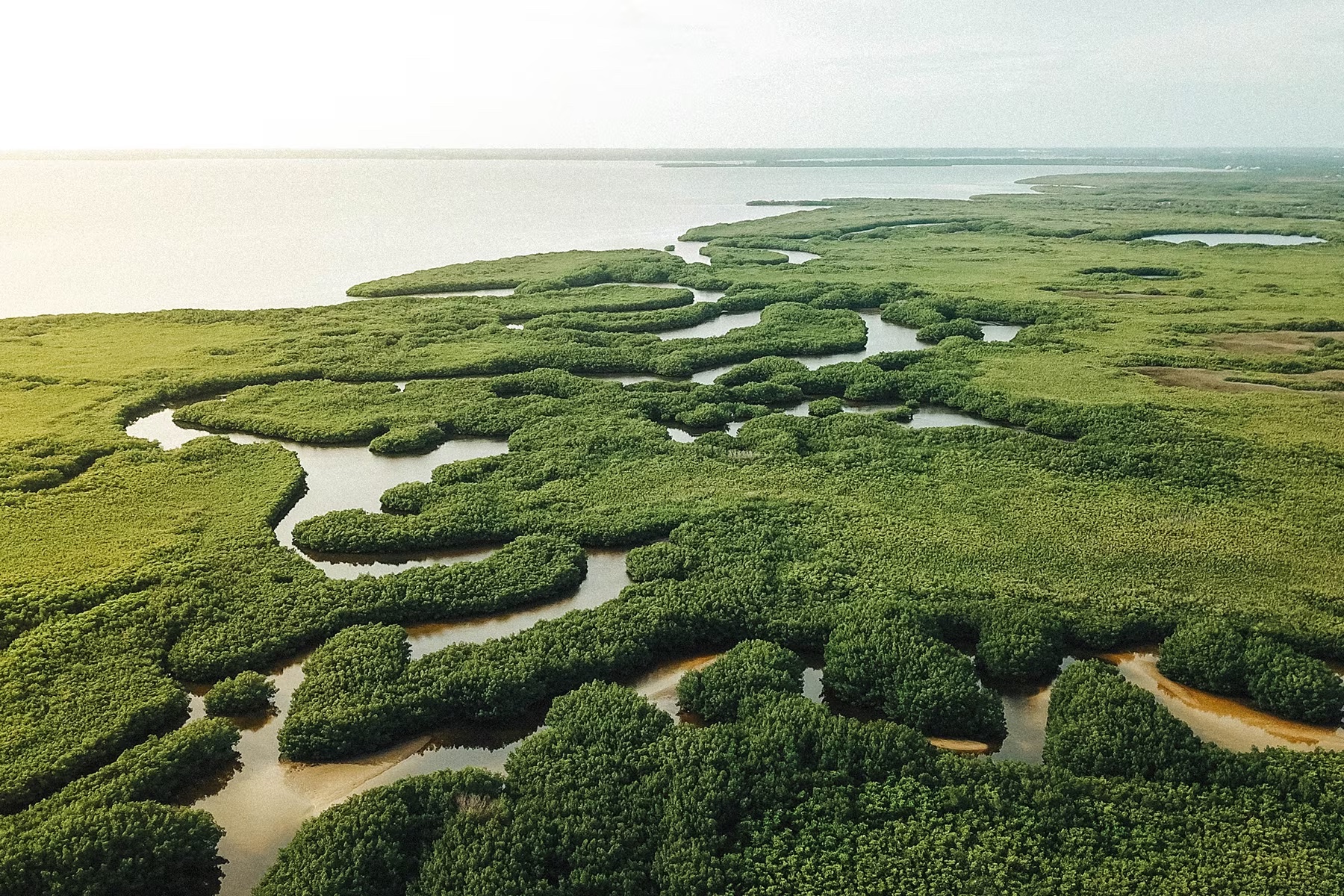Water stewardship.
We are committed to helping protect, conserve, and restore the Everglades and other major water resources in our footprint.

Our work with the National Audubon Society and National Park Foundation has helped restore millions of gallons of water per year. We also donate a portion of proceeds from our standard reusable bag sales to support the Arbor Day Foundation’s efforts to plant trees in damaged Florida watersheds.
The National Audubon Society
Publix supports the National Audubon Society’s efforts to remove invasive vegetation in the Corkscrew Swamp Sanctuary of the western Everglades. Trees such as Carolina willows consume so much water that the Everglades’ water is dropping to levels that endanger native species and the swamp itself. Our monetary donation to Audubon will be used to remove these willows—restoring approximately 500 acres and replenishing an estimated 110 million gallons of water each year. This work will lead to an increase in the clean, fresh water that millions of Floridians rely on.
The National Park Foundation
The National Park Foundation (NPF) is working to remove invasive species from the saline glades of the eastern Everglades.
Invasive, nonnative species, such as the Australian pine, are a serious threat to the integrity of the Everglades’ ecosystem. Australian pine is much larger than the surrounding flora and tends to consume significantly higher amounts of water than their native counterparts.
We have teamed up to support the NPF in this endeavor to control invasive Australian pine and restore an estimated 500 acres of the saline glades region of Everglades National Park, restoring 64 million gallons of water per year to the environment. This project will improve freshwater flow to the Florida Bay for the continued health of the area and the revival of native dunes, beach vegetation, and the habitats of Florida wildlife.
The Arbor Day Foundation
Since 2016, Publix has donated a portion of the proceeds from the sale of standard reusable bags to the Arbor Day Foundation to plant trees in damaged Florida watersheds. In early 2023, we officially reached one million trees planted in the state of Florida through our collaboration with the Foundation. These trees span more than 1,500 acres across several damaged watersheds including the Econfina Creek, Chipola River, and E. Guy Revell, Jr. conservation area watersheds; Ocklawaha River watershed; and the Withlacoochee River watershed.
A watershed is any area of land that drains water from higher ground into bodies of water. Trees are essential to slowing rainfall runoff—which means water has more time to soak into the ground, where it filters into the aquifer. In addition, trees help absorb excess nutrients, such as nitrogen and phosphorous, preventing them from entering the water system. Healthy watersheds also restore natural habitats for wildlife, which can help protect endangered and threatened animal species.
According to the Arbor Day Foundation, the trees it plants from our donations are estimated to intercept more than 87 million gallons of stormwater runoff and will help absorb and store more than one million metric tons of carbon dioxide over the next 40 years.*
*Estimates calculated using iTree, a state-of-the-art, peer-reviewed software suite from the USDA Forest Service that provides urban and rural forestry analysis and benefits assessment tools.